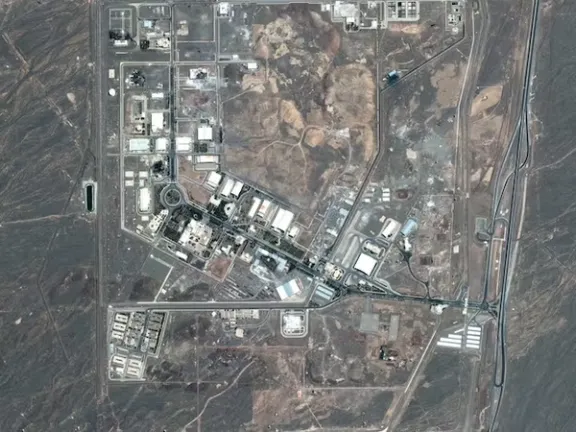Israeli Missiles Hit Three Iran-Linked Targets In Syria
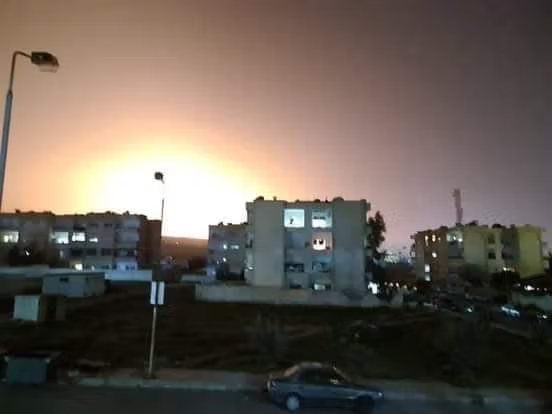
Israel late on Monday launched missiles at suspected Iranian and Hezbollah targets in the vicinity of Syria's capital Damascus.

Israel late on Monday launched missiles at suspected Iranian and Hezbollah targets in the vicinity of Syria's capital Damascus.
The attack left one Syrian soldier injured and "caused some material damage," the Syrian state news agency SANA reported, citing a military source.
A London-based Syrian group (SOHR) monitoring the conflict in the war-stricken country reported that three areas were hit that contain warehouses and military positions of Lebanese Hezbollah and Iranian militias, but said no casualties were reported.
Two targets were in Al-Kaswa area that were also attacked on August 7.
SOHR says it has documented 23 attacks in 2023: 18 airstrikes and five rocket attacks by ground forces, during which Israel targeted several positions in Syria, destroying nearly 52 targets, including buildings, weapons and ammunitions warehouses, headquarters, centers and vehicles. These strikes killed 59 combatants and injured 61 others.
Israel has for years been carrying out attacks against what it has described as Iran-linked targets in Syria, where Tehran's influence has grown since it began supporting President Bashar al-Assad in the civil war that started in 2011.
Iran has spent tens of billions of dollars in Syria and deployed tens of thousands of Revolutionary Guards and militia forces consisting of Afghans, Iraqis, and Syrians. In addition, Iran’s strongest proxy force, the Lebanese Hezbollah has been the backbone of Tehran’s effort to keep Bashar al-Assad in power.
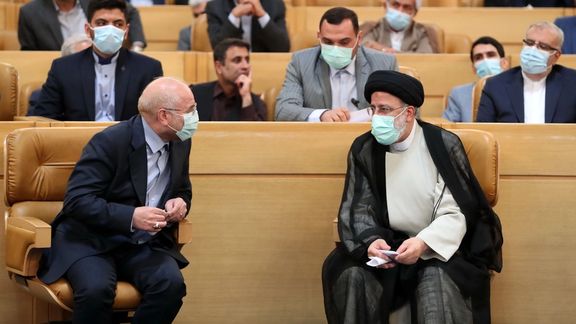
A conservative Iranian politician has alleged that those advocating "political purification,” aim to unseat Parliament (Majles) Speaker Mohammad Bagher Ghalibaf."
The term "purification" was coined by former Majles Speaker Ali Larijani to characterize ultraconservative allies of President Ebrahim Raisi, who wish to dominate the government by pushing out all other politicians and officials.
Mansoor Haqiqatpoor told Entekhab website on Saturday that "the refit between Speaker Ghalibaf and President Ebrahim Raisi has developed into a political faultline."
He said: "I do not think these conflicts are part of a political show. These are real conflicts. This is the continuation of the political purification initiative, and those who are behind it see Ghalibaf as an obstacle on the way to reaching their objectives and wish to get rid of him."
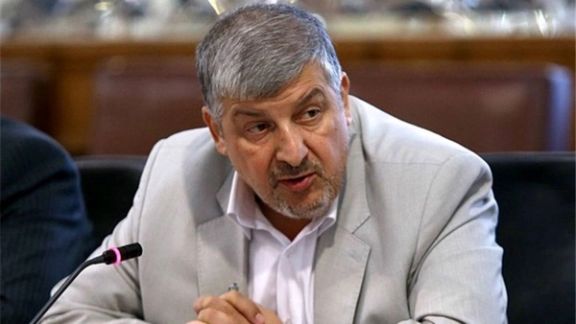
According to Entekhab, conflicts between Ghalibaf and Raisi have been intensifying recently as the ultraconservative Paydari Party, where the bulk of Raisi's supporters are, has been launching more serious attacks on Ghalibaf, blaming him for the government's problems.
Haqiqatpoor went on to say that Paydari's members had started challenging Ghalibaf's authority from the very beginning of the current Majles in 2020. He reiterated that after getting rid of former Speakers Larijani and Nateq Nouri and former President Hashemi Rafsanjani, the Paydari Party now seems to be adamant to omit Ghalibaf from the Iranian political scene.
He added that the ruling ultraconservatives are too arrogant to accept their responsibility in the government's economic, political and cultural failures and try to put the blame on Ghalibaf.
Haqiqatpoor said that Ghalibaf has now realized that the presence of reformists and moderates in the parliament would have been in his interest because they could have counterbalanced Paydari's pressure.
He said: "I hope those on top of the government, - presumably Khamenei and his aides - are intelligent enough to prevent handing over the government to a group that would push the Islamic Republic toward an abyss."
In the meantime, a similar purification process appears to be going on in the Iranian academic centers. A university professor, Ali Sharifi Zarchi wrote in a tweet on August 18 that "based on a document circulating in Iran's academic circles, the Raisi administration has secretly started the urgent process of hiring 15,000 faculty members without observing due scientific standards. This is a catastrophe, which, for instance, leads to hiring 100 non-experts for every medical school." Calling on the academics to protest against the action, Zarchi wrote: "The silence of the academic and scientific community [in the face of this action] will be a treason against Iran."
Meanwhile, Iranian journalist Maryam Shokrani has confirmed Zarchi's warning and further reported that "According to Farhikhtegan daily, following the dismissal of a large number of faculty members at the University of Tehran, Sharif University, Teachers Training University, and the University of Science and Technology and several medical schools have been demoted."
In another development, reformist journalist Mohammad Sadeq Javadi Hesar reminded the Raisi administration that what has kept the country backward is the absence of experts rather than the need for political purification. He added that getting rid of experts and highly qualified personnel has deprived the country of the growth and development it deserves.
He further said that the political purification is based on the old idea of insiders versus outsiders which has divided the country and alienated many for several decades now.
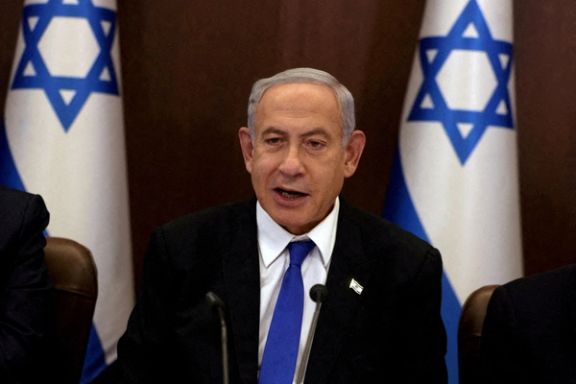
Israeli Prime Minister Benjamin Netanyahu has blamed Iran for a terror attack Monday that took the life a mother of three children near Hebron.
“We are in the midst of a terrorist assault encouraged, directed and financed by Iran and its proxies,” Netanyahu said as he visited the site of the attack.
A spokesperson for the Islamist Hamas group, backed by Iran that governs Gaza, Hazem Qassem, praised the attack and said it was a response to Israel's ongoing assaults on Palestinians.
Netanyahu was briefed by officials on the deadly attack and received an intelligence update on the area, especially Iranian efforts in the region and the intensive operational activity of the security forces in Judea and Samaria.
Israel, which was already hunting for a Palestinian suspected of shooting and killing two Israelis on Saturday, said it saw involvement from arch-foe Iran in the recent escalation of violence.
"The significant change that is taking place on the ground, it is related to Iranian funding and to the proliferation of weapons under the Iranian directive. Iran seeks every means to harm the citizens of Israel," said Defense Minister Yoav Gallant. He did not give any other details.
Since March when Iran reached an agreement to re-establish ties with Saudi Arabia it has intensified calls on Palestinians to attack Israeli targets
“It must be understood that a considerable portion of this terrorist wave comes as a result of outside guidance. We are using means, and we will use yet more, both offensive and defensive, to settle accounts with the murderers and those who dispatch them, near and far,” Netanyahu said.
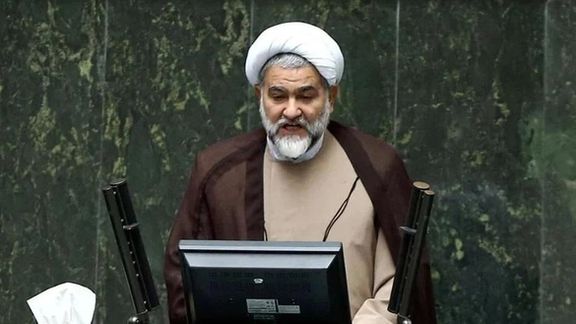
A senior Iranian lawmaker has said Reza Seqati, a director from Iran's culture ministry, deserves "to be thrown off the mountain" for having sex with another man.
Seqati, the former director of Iran's Ministry of Culture and Islamic Guidance in Gilan province, that acts as a hijab watchdog, was dismissed last month after a sex tape with a young man was leaked online. The video swiftly spread across social media platforms, raising a storm of controversy and public outcry.
On Monday, Hassan Norouzi called for the severest punishment. "If the allegations against Reza Seqati are substantiated, there is an unequivocal necessity for imposing stringent consequences. He must face the full force of the law and be shoved off the mountain and be killed to teach a lesson to others."
Seqati, who is married with three children, is a staunch advocate of mandatory hijab. During his tenure at the ministry of culture, he has made many attempts to enforce conservative cultural norms within the Gilan province. His initiatives included the launch of a hijab hypermarket and the establishment of a hijab exhibition, both aimed at promoting "Iranian-Islamic culture."
Shortly after the incident occurred last month, Iran's parliament speaker Mohammad Bagher Ghalibaf criticized not the content of the video but the act of leaking it to the public, saying that goes against Sharia law. This is a typical response from the regime, to focus on discrediting the source of evidence, rather than addressing the underlying issues of corruption or forbidden activities.
However, Sharia in Iran clearly forbids homosexuality among men and says it is punishable by death, a stance which now seems to be taken by the government.
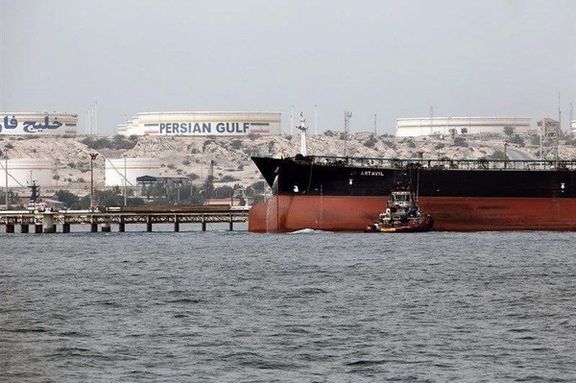
After the US-Iran hostage release deal, a report said Monday that Tehran boosted its oil exports to levels not witnessed since 2017, when there were no sanctions.
TankerTrackers.com that monitors global oil shipments, reported that in the initial 20 days of August, Iran dispatched an average of over two million barrels of oil daily, marking a more than 30-percent surge compared to the past few months.
Bloomberg and others who reported on the development did not offer a specific reason, but except the agreement announced in mid-August that the United States allowed the release of $6 billion of Iran’s money frozen in South Korean banks in exchange for five American hostages, no particular event or decision can be cited.
Iran’s oil exports began to decline in 2018 when former US President Donald Trump withdrew from the JCPOA nuclear accord in May 2018 and imposed third-party sanctions on Iran’s oil exports and international banking. By 2019, Iran was barely shipping 250,000 barrels per day and according to some of its senior officials at the time, it was earning less than $10 billion a year.
Changes started in late 2020 when Joe Biden won the US presidential election. In September of that year, he declared in a CNN op-ed that he aimed to reverse Trump’s decision and resurrect the Iran nuclear deal. China immediately increased Iranian oil purchases, pushing exports to about 700,000 barrels per day by mid-2021. During this period, Tehran engaged in indirect negotiations with Washington concerning the JCPOA, which persisted for 18 months without yielding any results.
After Washington announced last October that it was no longer pursuing the revival of the Obama-era deal, secret talks apparently continued with Iran, eventually resulting in the hostage release agreement. However, numerous media reports have indicated that the deal with Tehran goes far beyond the cash-for-hostages deal and the Biden administration has also agreed not to enforce sanctions in return for Iran slowing down its uranium enrichment.
The news of shipping 2 million barrels of oil per day appears to be the first indication that US oil sanctions on Iran are virtually defunct.
Although Iran is selling the oil with discounts to China and possibly to others now, even a $50/barrel price tag will bring in more than $100 million a day for Iran’s cash-strapped regime.
The only thing standing on the way of a $40 billion annual cash revenue for Tehran now is the US banking sanctions. So far, Iran has been unable to repatriate a significant part of the oil revenues in cash US dollars or other hard currencies. If Chinese and other third-country banks feel the US will look the other way, that restriction will also disappear.
Iran has shown no indication of having changed its anti-West foreign policy, or its malign behavior in the region. As a matter of fact, the United States has beefed up its naval and air power in the Persian Gulf in recent months, concerned that Tehran can continue threatening commercial shipping.
US Republican lawmakers and others who have already voiced serious concern with the hostage deal will see Iran’s oil export data as a vindication of their warnings that President Biden has made a secret deal with Tehran, with no Congressional oversight, as the law requires.
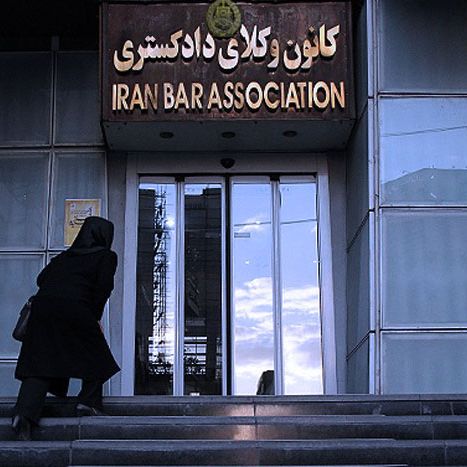
Controversy has erupted within the legal community in Iran as attorney license authority moves away from independent bar associations to the government.
During an open session of parliament on Monday, a new clause was passed into the resolution, compelling bar associations to adhere to decisions made by the Regulatory Board of the Ministry of Economy.
Lawyers across the country are outraged at this decision. Hassan Safadoust, head of the Central Bar Association, said, "The parliamentary resolution granting authority to the Ministry of Economy for issuing, extending, and revoking attorney licenses runs contrary to international legal norms, documents, and agreements."
In defiance, the board of directors of the Alborz Bar Association unanimously announced the cancellation of its scheduled activities.
Numerous lawyers have highlighted that the "parliamentary resolution pertaining to bar associations contradicts overarching judiciary policies."
Ali Pazouki, head of the Zanjan Bar Association, warned that the resolution could have irrevocable implications for the country, transforming the judicial system into a "commercial enterprise" and lawyers into "illicit traders and delinquents."
Mohammad Shivaei, a lawyer and member of the Central Bar Association, expressed his concerns on the social networking site X (formerly known as Twitter), stating that the parliamentary resolution relinquishes the authority of the legal profession and the right to defense to the government and the Ministry of Economic Affairs.
The Bar Association, as a long-standing professional and legal institution in Iran spanning four decades, has consistently encountered pressures from governmental bodies and the judiciary, resulting in gradual diminishment of its autonomy and authority through the enactment of various laws.
